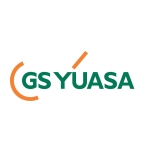GS Yuasa Exceeds 4,000,000 Watt-Hours of Li-ion Energy Storage in Space

ROSWELL, Ga.–(BUSINESS WIRE)–GS Yuasa Lithium Power announced today that GS Yuasa Technology’s “LSE” lithium ion (Li-ion) cells have exceeded 4.0 MWh of energy storage on orbit. This milestone is marked by the launch of HTV-9 and delivery of the final set of Li-ion replacement batteries for the International Space Station.
“We’re certainly proud to be the first organization to achieve this milestone,” explained Curtis Aldrich, President of GYLP. “In a mature industry, consistent leadership can’t happen without exceptional performance from our technical solutions, people and organization. We are truly appreciative of the partners who enable our success and the trust our customers place in us when failure is not an option.”
First introduced in 1998 the “LSE” Li-ion cells were specifically designed for the unique environments and demanding duty cycles of aerospace applications. For more than 20 years, GS Yuasa space cells have earned a reputation for delivering exceptional performance and value in critical commercial communication, remote sensing, scientific, defense and human rated applications.
All GS Yuasa Li-ion cells for space share the same basic chemistry, design, materials, construction and manufacturing processes and have consistently been built to the most rigorous aerospace quality standards. Combining this with a strong emphasis for supplier management and configuration control has resulted in exceptionally high cell reliability as evidenced by the support of over 200 space vehicles operating in a myriad of orbits with no cell failures.
With volumes of life and performance data available and a solid connection between industry leading spaceflight heritage without failure and the Li-ion cells offered today, GS Yuasa’s value proposition is stronger now than ever.
The ability to configure a battery system with cells of this pedigree differentiates the “LSE” cells from repurposed terrestrial commercial cells, enabling GS Yuasa to deliver solutions in support of critical missions without having to oversize the battery to meet design life requirements, some in excess of 20 years. The resulting high specific-power batteries help customers meet power system mass targets and reduce launch costs while minimizing program insurance costs. This is more important than ever as operators shift away from single large spacecraft to a more distributed and optimized satellite network.
To learn more about GS Yuasa’s LSE family of Li-ion cells for space, please contact GS Yuasa Lithium Power, Inc.
About GS Yuasa Corporation
GS Yuasa Corporation was established in 2004 by the merger of Japan Storage Battery Co., Ltd and YUASA Battery. GS Yuasa develops and manufactures batteries and power supply systems for a wide range of special applications. The company’s high-performance, high-quality batteries are installed in sea, land, and aerospace environments, from depths of 6,500 meters below the ocean surface to 36,000 kilometers in space.
http://www.gs-yuasa.com/jp/ (Japanese)
https://www.gs-yuasa.com/us/ (English)
About GS Yuasa Technology, LTD (GYT)
GS Yuasa Technology is a subsidiary of GS Yuasa Corporation located in Kyoto, Japan. GYT designs and manufacturers large format lithium ion cells for aerospace and specialty applications.
1-37 Osadano-cho Fukuchiyama-shi
Kyoto pref. 620-0853, Japan
Phone: 81-773-20-2630
About GS Yuasa Lithium Power (GYLP)
GS Yuasa Lithium Power, Inc. is the United States subsidiary of GS Yuasa focused on large format lithium ion battery system manufacturing for US customers. Primary products are lithium-ion battery systems for aerospace, defense, commercial, and industrial applications. http://gsyuasa-lp.com/
For additional Information, please contact:
GS Yuasa Lithium Power, Inc.
1150 Northmeadow PKWY Suite 118
Roswell, GA 30076 USA
888.GSYUASA (888.479.8272)
678.892.7501 (Fax)
media@gsyausa-lp.com
http://www.gsyuasa-lp.com
Contacts
GS Yuasa Lithium Power
Tom Pusateri
Director, Business Development
678-892-7505
